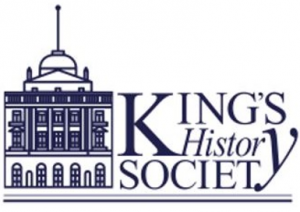

There are many misconceptions about history degrees, such as that it’s boring, that it’s hard to get a job with a history degree, and that it is simply repeating the sort of content that you might have learnt in school. Hal, a BA History and Iberian Studies student at King’s, says that these misconceptions are all categorically false! So, here are some of the things that she wishes that people knew about studying for a History degree at university level.
- Studying history is so much more than knowing which events happened when!
Many people believe that studying history is simply a case of studying certain events and knowing where and when they happened. But History is so much more than that! Historians think and debate about the reasons why and how certain things have happened, and how they can still affect us today. What you take to be ‘history’ is based heavily on your own interpretations and thoughts about these things. Although there are some things that are agreed on as being ‘facts’, the details of these facts are open to interpretation; your independent critical thinking paves the way for your studies far more than a textbook!

- ‘Academic historian’ and ‘Librarian’ are not the only career pathways that follow a History degree!
A history degree can equip with plenty of transferrable skills that make you more employable in the world of work. Some of these skills include time management, teamwork, oral and written skills, project planning, research and presentation, amongst many others. These skills give you a leg up when seeking a job, and they allow you to work in lots of different fields, such as teaching, politics, journalism, marketing, tourism and law. If you study History at King’s, you’ll also have the option to choose a study abroad placement in the second semester of your second year, which is a further opportunity to develop these transferrable skills. In first year, all students study a module called HSSA, which focuses on Historical Skills, Sources and Approaches. This module helps form the basis of your degree and provides you with the research skills you’ll need for the rest of your course.
In fact, some of the world’s most successful and famous people studied history at university. A former CEO of Hewlett-Packard (HP), Carly Fiorina, studied medieval history. Additionally, Ken Chenault, who was the CEO of American Express, studied history. And Susan Wojcicki, who is the CEO of YouTube and the first Marketing Manager at Google, studied history at Harvard. If that wasn’t enough, Prince Charles, Louis Theroux, Sacha Baron Cohen, Steve Carell and former British prime minister Gordon Brown all also studied History at university. A History degree does not limit your options in the workplace at all – it provides you with really valuable skills and opportunities.

- There are many different types of modules and areas in which you can study history – and they are not all about WWII
There is a saying in the history department at King’s that we ‘cover everywhere but Antarctica’. The academics in our History department have interests in many different areas of history covering an extensive list of locations. Atlantic Slavery in West Africa and the Caribbean, The Experience of Modernity in London, Melbourne, New York and Paris, and Sexuality and Gender in Modern Britain are just a few examples of the modules we offer at King’s. These are subject to change, as every year new modules are added and tweaked to ensure that you receive the most up-to-date, relevant and innovative content. The lecturers and tutors in the department are incredibly passionate about History, being world leaders in their fields of study, and are approachable, supportive and friendly. They are also often conducting their own research throughout the year alongside teaching, and as students at King’s, this means that you really are getting the most out of your learning experience.
Read More:
To read more about the Study abroad experience, read Ellie’s blog post by clicking here
For more information on studying BA History and similar degree pathways at King’s, click here

Leave a Reply